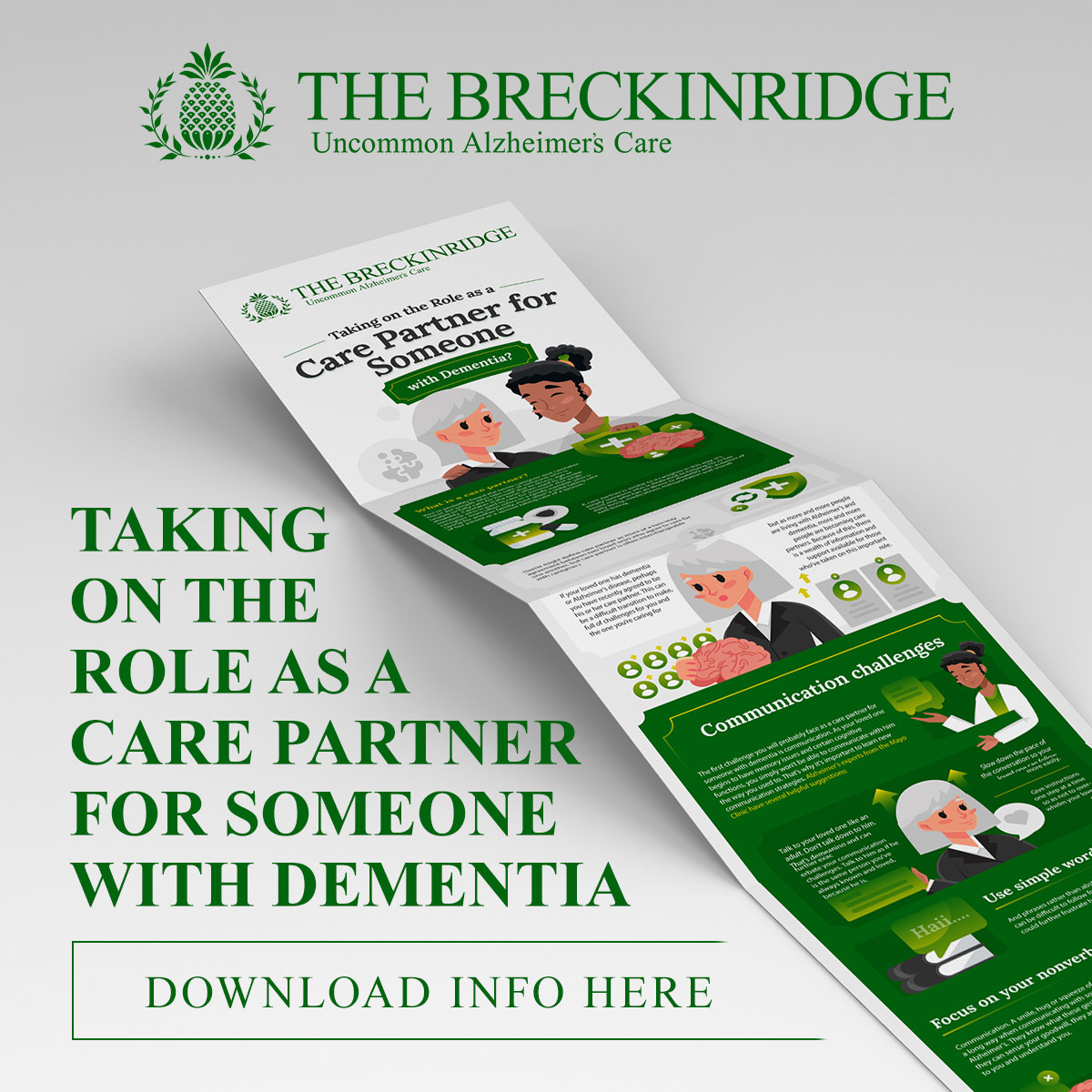Can a Person with Dementia Live Alone?

Can a person with dementia live alone?
Dementia carries a lot of stigma in our culture. Because of a lack of understanding, many make assumptions about what a dementia diagnosis entails. They assume once you’re diagnosed with dementia, you must live in a nursing home or assisted living facility. They assume someone with dementia can no longer work, complete tasks or hold a conversation.
This simply isn’t true.
Just because someone has been diagnosed with dementia, doesn’t mean their life has ended. It doesn’t mean they immediately need full-time care, and it doesn’t mean they have to stop working. Many people can continue living independently with a dementia diagnosis, especially during the early stages.
It is true that dementia and Alzheimer’s are neurodegenerative conditions, which means they get worse over time. It’s also true that there is no cure for dementia or Alzheimer’s, so eventually, someone who has moderate or advanced Alzheimer’s disease or another form of dementia will need full-time care, whether that’s at home or in a memory care facility. (Read our blog 5 Signs Your Loved One Requires Memory Care to learn when it’s time for someone with Alzheimer’s or dementia to move into a full-time memory care facility.)
But in the early years of a diagnosis, there are many reasons someone with dementia would choose to live alone rather than move in with family or into a memory care facility.
Why would someone living with dementia want to live alone?

1. Stability
Dementia is a life-changing diagnosis. Uprooting and moving in with a family member or into a care facility is also life-changing. Too many changes at once are disruptive for anyone, especially someone dealing with a difficult medical diagnosis. Staying in your home where you’re comfortable, even if you live there alone, can bring a sense of stability during a trying and uncertain time.
2. Independence
Independence is important to all of us, and this doesn’t change with a dementia diagnosis. You don’t suddenly go from feeling like an independent adult to someone who needs or wants full-time care. Being able to live as independently as possible for as long as possible is empowering for someone who is living with dementia.
3. Social connection
If your home is in a neighborhood or community where you are close to family and friends, you will probably want to stay there for as long as possible. Social connection is essential for someone who is living with Alzheimer’s or dementia. Being able to stay connected to your community, even if that means living alone, can be beneficial to your mental and physical health.
Share this Infographic Image On Your Site
<p><strong>Please include attribution to https://thebreckinridge.com/ with this graphic.</strong><br><br><a href="https://thebreckinridge.com/ways-to-stay-engaged-socially-with-dementia/"><img src="https://thebreckinridge.com/wp-content/uploads/2022/11/2-taking-on-the-role-as-a-care-partner-for-someone-with-dementia-thebreckinridge.jpg" alt="Taking on the Role as a Care Partner for Someone with Dementia" width="1200px"></a></p>How to stay safe while living alone with dementia
If you choose to live at home alone after your diagnosis, the Alzheimer’s Association has extensive resources and advice to help you stay safe and healthy while living independently.
Here are a few things they suggest keeping in mind:
1. Physical Safety
As a person living with dementia, you are more susceptible to wandering, especially if your dementia is more advanced. This can be unsafe if you wander away from home and can’t find your way back. To prevent this from happening or to help friends and family find you if you wander away from home, you can sign up for a MedicAlert membership plan with Wandering Support. This will help first responders and family members find you in case you wander away.
Older adults who are living with dementia are also more susceptible to falls. Getting back up after a fall can be dangerous, or impossible, depending on the extent of your injuries. This resource from the Centers for Disease Control and Prevention provides tips and resources for how older adults can prevent falls by staying physically active and by keeping their homes free from tripping and safety hazards. You can look into purchasing a medical alert system, such as this one, that provides a device you wear around your neck so if you do fall, you can easily contact emergency services.
2. Nutrition
Maintaining a healthy diet and eating consistent meals is crucial for your health, especially if you are living with dementia. This can be difficult to do when living alone. You may forget to eat, or you may not be able to grocery shop as often as you need to. Signing up for a free meal service like Meals on Wheels is a good option if cooking is difficult for you or if you tend to forget to eat.
Alternatively, you can recruit a group of friends or family members who can check on you every day or every other day to help provide and prepare meals for you or to make sure you’ve eaten and your fridge is fully stocked.
3. Finances
Bills can easily slip our minds, whether we are living with dementia or not. Setting up auto-pay and direct deposits will ensure you don’t miss any important payments you need to make or payments being made to you by a pension plan or Medicare.
Make sure you fully understand how your finances are set up, what credit or debit cards you can use, and where your checkbook is at all times. Having your finances in order now will also serve you greatly in the future.
4. Social interaction
If you live alone and don’t have family or friends nearby, be sure to stay connected to your community. The Alzheimer’s Association has numerous resources for support groups and social groups for those who are living in the earlier stages of dementia. This social connection and support will benefit you physically, emotionally and mentally.
5. Driving
At some point, anyone who is living with a neurogenerative disease will no longer be able to drive. Driving requires cognitive and physical abilities that decrease as the disease progresses. If you have family or friends in town who can drive you to your appointments, the grocery store, church, etc., have a plan in place for who will drive you where and when.
If you don’t have support nearby, the Alzheimer’s Association has an excellent list of resources that provides information on how those who are living with dementia can find local transportation, including:
The National Aging and Disability Transportation Center
2-1-1 (a helpline for those who need access to immediate local resources)
Can someone with dementia live alone?
At some point, anyone living with dementia will need full-time care, whether that’s at home or in a memory care facility. As we mentioned above, we’ve written about how to know when it’s time for a loved one to move into a memory care facility. The Alzheimer’s Association of Canada also provides an excellent resource on this topic that includes a list of questions to ask to determine if you or your loved one is able to live alone at this stage of their dementia. You can find that here.
Until it’s time for full-time care, with the right measures and precautions in place, living independently in the comfort of your home is possible, safe and often beneficial for those who are living in the early stages of dementia.






